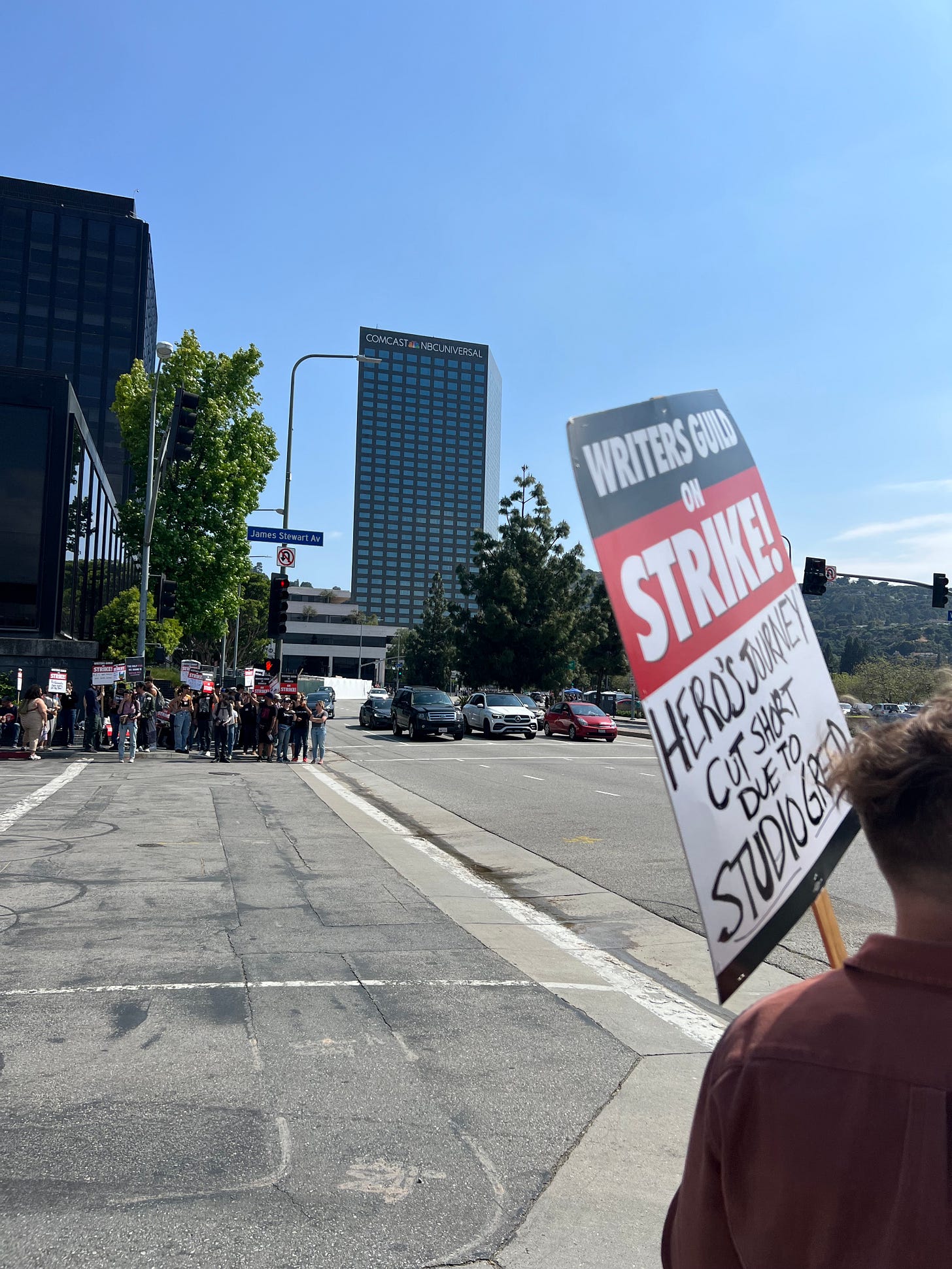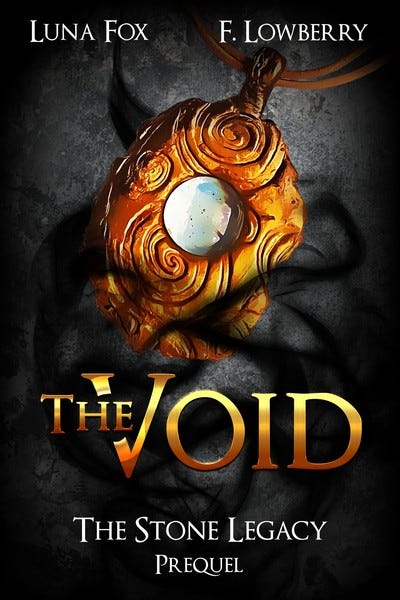Writers Strike
Hollywood in a Whirlwind
FREE FICTION READING BELOW
Dear Reader,
No matter where you live in the world, you have probably heard the writers in Hollywood are striking. You might ask;
“Why? Don’t all writers in Hollywood have homes in Malibu? Isn’t writing for the screen the best way to ‘make it’ as a writer?”
In a word: no.
In a few more words: streaming content has drastically changed the landscape of the entertainment industry. Whereas writers were paid for each script they wrote, and then received royalties each time it was re-aired, now writers are paid for writing an episode…. and that’s pretty much it. One of the guild’s demands was to increase that payment to 2% on every dollar of profit. The AMPTP (Alliance of Motion Picture and Television) said “no.”
Podcast: THE WRITERS PANEL, “Strike Talk with John Rogers”
(John Rogers is a WGA Board Member and showrunner/creator.)
Not only that but shows are now written by “mini rooms,” which (as the name implies) hire fewer writers. You might also have noticed that shows are more often “limited series,” meaning 8-10 episodes, which means fewer scripts to write, and less time to train new screenwriters on making television.
Personally, I am a fan of “limited series” because it means there is less pressure to force a story to go longer than it should. Shows are allowed to reach their natural conclusions, and the content within the episodes also tends to be more compelling because the writers aren’t forced to hold back on story development. However, because of the new streaming landscape, writers are being paid less.
In a now popular phrase:
“Writers are falling out of the middle class.” (Los Angeles Times,
‘It’s just pure chaos’: Top Hollywood showrunners explain the writers’ strike)
Being someone who just picked up and moved her life across the country in order to launch her profession as a screenwriter, I am very glad the WGA (Writer’s Guild of America) is striking. They are working to make sure this is a viable career choice for someone who doesn’t come from money. Writes want to tell excellent stories AND be able to support their families.
Thanks to a vested interest in the success of this strike, yours truly has shown up to the picket lines. I’ll admit, though I believe in the mission of the strike, it was startling to encounter the reality: there were SO MANY PEOPLE.
It was shocking to see that many human beings all walking around in front of Universal Studios with black and red signs. The vast majority of them were working writers in the guild, but there were representatives from other guilds as well, such as the actor’s guild. Of course, there were plenty of people like me (pre-guild status) who believe in the cause and came out to support it. And then… there was the honking.
SO MUCH HONKING. I am not a fan of honking, even when I am the one doing it. Usually, it means someone driving a massive piece of machinery is angry. I thought the cars driving past us were mad at the picketers (even though we only crossed the street when the sign said we could). Then I looked over and saw the drivers and passengers fist-pumping, cheering us on.
The next day I went to the Disney lot and it was the same thing; so much honking, so much support. Even if people aren’t walking with us, audiences want their writers to be paid better.
Walking back and forth, getting to know my future co-workers, I wondered if I was missing something: the atmosphere in the picket lines was friendly, with people catching up or getting to know each other; the traffic around us vocalized their full support; and I had listened to a number of podcasts explaining the reasons for the strike, the list of demands, and the opinions for and against it.
Across the board, it seemed fairly clear that everyone knows and agrees that writers must be paid better. So is this really just a case of corporate greed? Are the network execs really the cliche “big bad” and they don’t care about public opinion?
Though we hope the strike will only last a month or two, we know for certain that due to the backlog of content, streaming services like Netflix can hold out until the fall (which means they can probably hold out until winter). This means that although the industry is grinding to a halt — many people immediately losing income — the effects on content won’t be felt by audiences for six to nine months.
People in this industry are going to suffer, so what am I missing?
A conversation with a new friend who works in the industry revealed a key piece of information: streaming does not produce enough money.
In the past, advertisements paid for content. Now, the subscription model does not increase revenue because there are only so many people to sell to, and whoever gets a subscription is sharing it with their four friends or family members. This is why “freevee” did well last year: because it is supported by ads. From calculations on IndieWire, Netflix and Hulu are the only ones turning a profit right now.
Yes, the execs are probably making too much money off of other people’s work. Writers should have a much bigger piece of that paycheck. However, the other problem is the business model of streaming services.
In an industry where so much changes so fast, I believe we are going through another tectonic shift. Minds gifted with business creativity need to come together and rework the model, find a way to make streaming profitable, and reward the people who spend countless hours in mental and emotional heavy lifting to give us the story which entertains, instructs, and often heals us.
The value of “story” to human society cannot be underestimated, and the hard work and brilliance of its creators should not be undervalued: they should be rewarded.
Here is the current negotiation status between the WGA and AMPTP.
If you don’t live in LA and still want to support the writers strike, share this newsletter with anyone else who enjoys TV or movies. If you do live in LA, but can’t join a picket line, honk away.
Best,
FREE FICTION READING
S. C. Durbois Newsletter
1st Saturday every month: a new original short story.
3rd Saturday every month: a writerly check-in with updates.
4th Saturday every month: a new chapter from “Bohan the Mage,” a dark academic fantasy novel. Subscriber access only.









